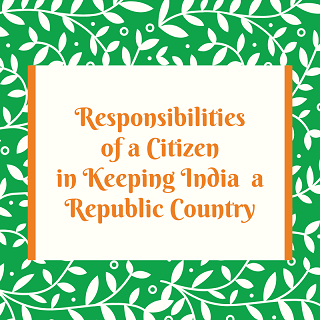We should respect our country.
The fundamental rights, defined In part 3 of the constitutions, applied irrespective of race, place of birth, religion, caste, creed, gender and equality of opportunity in matters of employment. They are enforceable by the courts, subject to specific restrictions.
The Directive Principles of state policy are guidelines for the framing of laws by the government.
These duties set out in part 4-A of the constitution, concern individuals and the nation. Like the Directive principles, they are not enforceable by courts unless otherwise made enforceable by parliamentary law. The idea of citizenship has acquired a new meaning, context and purpose in the democratic world.
We people of India, having solemnly resolved to constitute. India into a sovereign socialist secular democratic republic and to secure to all its citizens: JUSTICE, social, economic, political; and law and order. Liberty of thought, expression, belief, faith and worship; EQUALITY of status and opportunity; and promote among them all. In constituent Assembly this twenty-six day of November 1949. While emphasising on rights, it very important that one is also sincere about his or her duties towards the society at large and the country, especially its safety and security imperatives. Another example is Singapore, whose growth story has been fuelled by its emphasis on the relentless pursuit of duties by its citizens.
